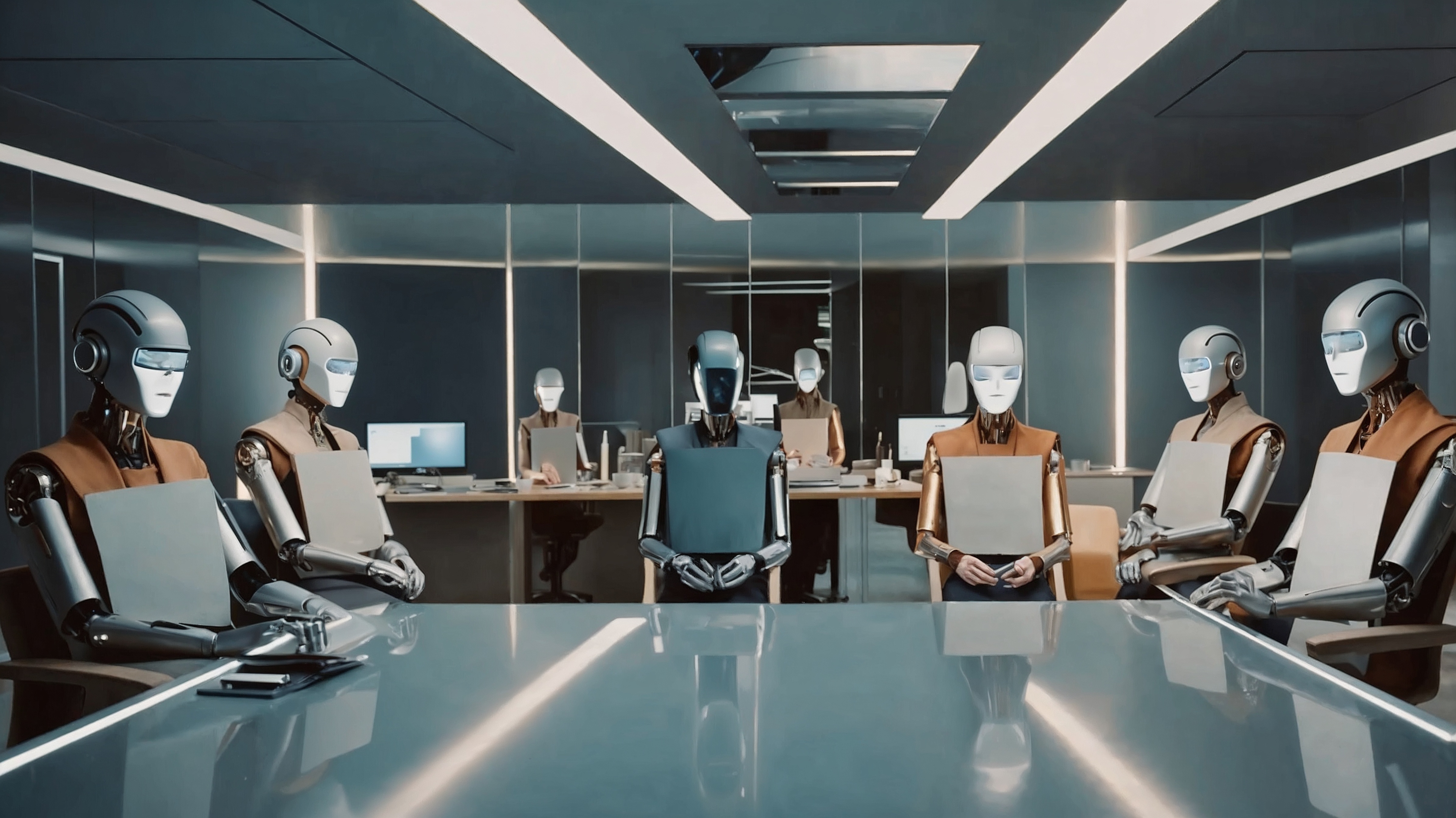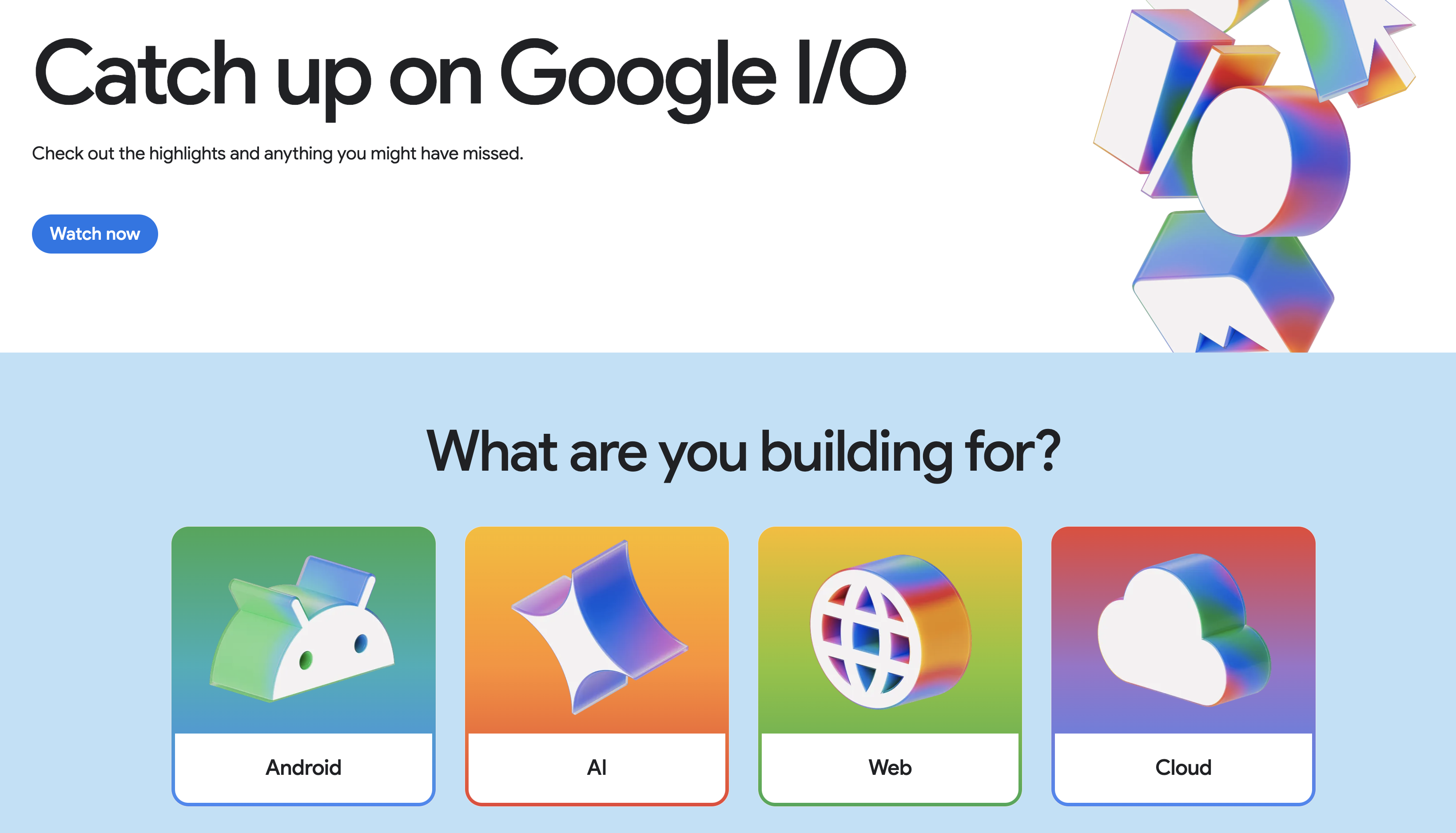News on Artificial Intelligence: AI isn’t coming. It’s already rewriting the rules.
Jun 11, 2025
Written by Sabine VanderLinden
- AI transformation in insurance requires moving beyond pilot purgatory. Despite billions in investment, 88% of enterprise AI initiatives fail to reach production, and successful implementation demands venture-client partnerships over traditional R&D labs to bridge the gap between experimentation and commercial deployment.
- Generative AI is reshaping risk assessment and underwriting today, not tomorrow. Insurance carriers using AI-powered decisioning systems are reducing claim processing times by 70% while parametric insurance models powered by real-time data are already closing the $1.8 trillion global protection gap.
- The venture-client model accelerates InsurTech AI adoption 3x faster than corporate venturing. Companies implementing the DIVAAA framework (Discover-Investigate-Validate-Adopt-Activate-Amplify) achieve production-ready AI solutions within 6-9 months versus the 2-3 year timeline of traditional innovation theaters.
Behind every corporate decision, operational overhaul, and societal shift lies a machine quietly learning, iterating, and influencing outcomes. Yet while leaders race to embed AI into every layer of their business, few stop to ask:
What are we optimizing for? Efficiency or equity? Innovation or influence?
This article isn’t just a roundup of AI’s latest milestones. It aims to be a wake-up call for decision-makers to confront the uncomfortable truth—AI isn’t neutral. And the choices we make today will define who benefits, who’s left behind, and who controls the next era of intelligence.
The world of artificial intelligence (AI) is evolving at an unprecedented pace, reshaping industries, economies, and everyday life across the globe. From breakthroughs in large language models and generative AI to transformative applications in healthcare, education, and security, AI is becoming an integral part of modern technology. Companies and researchers are racing to develop innovative tools and systems that not only enhance efficiency but also raise important ethical and regulatory questions. As AI continues to advance, its impact is felt worldwide, influencing how people work, learn, and interact with technology.
Let's examine the latest news on artificial intelligence, highlighting key innovations, major company announcements, applications across industries, and the challenges that lie ahead.
A Brief Reminder: What Is Artificial Intelligence?

Artificial intelligence (AI) is a branch of computer science focused on creating systems and tools that can perform tasks typically requiring human intelligence. These tasks include understanding natural language, recognizing images and video, making decisions, and learning from data. Over the past decade, AI has rapidly evolved from a niche area of research into a transformative technology that is reshaping industries, improving company operations, and touching nearly every aspect of daily life across the globe.
At its core, AI leverages algorithms and vast amounts of information to identify patterns, make predictions, and automate complex processes. Companies are increasingly adopting AI to gain a competitive advantage, streamline workflows, and respond more efficiently to market demands. From virtual assistants that help people manage their schedules to advanced systems that optimize supply chains, AI is driving innovation and increasing efficiency in ways that were unimaginable just a few years ago.
The latest wave of AI advancements, including large language models and generative AI, is enabling new forms of creativity and problem-solving. As research continues to push the boundaries of what AI can achieve, experts agree that its influence will only grow, making it essential for individuals and organizations to stay informed and adapt to this rapidly changing landscape... not only to achieve productivity and efficiency gains but also to advance new products and services.
Key Takeaways
-
According to a recent report, the global AI market is projected to reach USD 1,345.2 billion by 2030, driven by advances in technologies like Generative AI and natural language processing.
-
AI is transforming various industries by enhancing predictive analytics, threat detection, and personalized learning experiences.
-
The rapid evolution of AI raises significant regulatory and ethical challenges, including algorithmic bias and public skepticism regarding effective governance, highlighting the need for transparent practices.
Latest AI Innovations

The landscape of artificial intelligence is continuously evolving, with groundbreaking innovations emerging at a rapid pace. One of the most transformative technologies in recent years is Generative Adversarial Networks (GANs), which enable the creation of high-resolution images and improve image super-resolution applications. Concurrently, advancements in Natural Language Processing (NLP) due to deep learning techniques have revolutionized tasks like sentiment analysis and machine translation, contributing to the projected growth of the global virtual assistant market at a CAGR of 37.7% from 2025 to 2030.
AI’s integration across various sectors is enhancing operational efficiencies and driving innovation. Key technologies leading the way include:
-
Generative AI and large language models
-
Text-to-image and text-to-video models
-
Speech recognition and generation
-
Predictive analytics
The global market for AI is expected to reach approximately USD 1,345.2 billion by 2030, growing at a compound annual growth rate (CAGR) of 36.8% from 2023 to 2030. Themis AI, for instance, has developed technology to teach AI systems to flag whether their predictions are based on solid evidence or educated guesswork, enhancing the reliability of AI outputs.
Explainable AI (XAI) is also gaining traction, focusing on making AI decision-making processes transparent and interpretable. The market for XAI is projected to grow to USD 16.2 billion by 2028, driven by its adoption across various industries.
As AI continues to advance, its potential to analyze vast datasets and improve diagnostic accuracy in healthcare, optimize decision-making in supply chain management, and enhance efficiencies across sectors becomes increasingly evident.
Major Company Announcements

The world of AI is abuzz with major announcements from leading companies, heralding new advancements and strategic moves. At the Google I/O 2025 event, Google unveiled and showcased its latest AI innovations and updates across various products, including:
-
Gemini AI
-
Android XR glasses
-
Google Beam
-
Project Astra
-
Chrome
-
Deep search news
These innovations reflect Google’s commitment to pushing the boundaries of AI technology and enhancing user experiences.
Nvidia’s head, Jensen Huang, made headlines by criticizing Biden-era controls on AI chips, labeling them a ‘failure’ that cost U.S. companies billions in sales. This highlights the ongoing tensions and challenges in the regulatory landscape of AI.
Meanwhile, Meta is set to introduce fully automated AI-generated advertisements next year, targeting users based on personalized data, which marks a significant shift in the advertising industry.
The economic impact of AI is substantial, with analysts predicting that:
-
The AI market could reach a valuation of $1 trillion by 2027.
-
Global expenditures on data centers increased by 51% to reach $455 billion in 2024.
-
The United States saw a significant increase in private AI investment, reaching $109.1 billion in 2024, outpacing both China and the U.K.
These investments underscore the growing importance of AI in driving economic growth and technological innovation.
AI Applications Across Industries
Artificial intelligence is being applied across a wide array of industries, each benefiting uniquely from its capabilities, helping people improve their productivity :
-
In healthcare, AI drives advancements in predictive analytics, early diagnosis, and personalized treatment plans.
-
Security applications of AI are enhancing global operations, particularly in sensitive and strategic areas.
-
In education, AI tools are transforming the learning experience and streamlining administrative tasks.
These diverse applications illustrate AI’s potential to revolutionize traditional processes and drive efficiency. The following subsections delve deeper into how AI is making a significant impact in healthcare, security, and education.
Insurance
Artificial intelligence is driving significant innovation in the insurance industry by improving risk assessment, claims processing, and customer service. AI-powered predictive analytics enable insurers to evaluate risk profiles better, leading to more accurate pricing and personalized policy offerings. Machine learning algorithms analyze vast datasets, including customer behavior and external factors, to identify patterns that help in fraud detection and risk mitigation.
Claims processing has become more efficient through AI automation, reducing the time needed to evaluate and settle claims. Chatbots and virtual assistants provide customers with instant support, answering queries and guiding them through policy details or claim submissions. Additionally, AI tools are helping insurance companies optimize their operations by forecasting market trends and customer needs, ultimately enhancing overall efficiency and customer satisfaction.
As AI continues to evolve, the insurance sector is expected to see further advancements, such as the integration of Internet of Things (IoT) devices for real-time monitoring and risk management, further transforming how insurance products are designed and delivered.
Finance
Artificial intelligence is revolutionizing the banking sector, driving innovation that challenges traditional financial paradigms and reshapes how banks operate and serve their customers. Beyond automating routine tasks, AI is enabling banks to harness vast amounts of data to deliver personalized services, enhance security, and optimize decision-making processes.
One of the most profound impacts of AI in banking lies in risk assessment and fraud detection. Machine learning algorithms analyze transaction patterns in real-time, identifying anomalies that may indicate fraudulent activity far more accurately and swiftly than human analysts. This proactive approach not only protects customers but also reduces financial losses and regulatory penalties for institutions.
Moreover, AI-powered chatbots and virtual assistants are transforming customer service by providing 24/7 support, answering complex queries, and guiding users through financial products with tailored recommendations. This shift not only enhances customer experience but also frees human agents to focus on higher-value interactions.
AI is also driving innovation in credit scoring, moving beyond traditional metrics to incorporate alternative data sources such as social behavior and digital footprints. This evolution holds the promise of expanding financial inclusion by enabling underserved populations to access credit and banking services previously out of reach.
However, these advancements raise critical questions about privacy, data security, and algorithmic fairness. As banks increasingly rely on AI-driven decisions, ensuring transparency and mitigating biases becomes paramount to maintaining trust and upholding ethical standards.
The future of banking will likely be shaped by AI systems that seamlessly integrate with human expertise, creating a hybrid model where technology augments rather than replaces human judgment. This interplay will challenge banks to rethink regulatory compliance, customer engagement, and operational efficiency in an era defined by rapid technological change.
In this transformative journey, AI innovation in banking is partly about technology adoption. It is mostly about reimagining the very foundations of financial services to build a more inclusive, secure, and responsive banking ecosystem, though.
Healthcare
Artificial intelligence is not just enhancing healthcare—it is fundamentally reshaping how we understand, diagnose, and treat diseases. By harnessing vast amounts of patient data, AI systems can uncover patterns invisible to the human eye, enabling predictive analytics that anticipate health outcomes before symptoms even appear. This shift from reactive to proactive care promises to revolutionize personalized medicine, tailoring treatments to individuals' unique genetic and lifestyle profiles.
Beyond diagnostics, AI-driven tools are accelerating drug discovery, reducing the time and cost needed to bring new therapies to market. Machine learning models analyze complex biochemical interactions and simulate clinical trials, offering unprecedented speed and precision. Furthermore, AI-powered robotic systems enhance surgical precision and patient monitoring, minimize risks, and improve recovery times.
However, this rapid innovation raises profound questions about data privacy, ethical use, and equitable access. As AI becomes more embedded in healthcare, society must grapple with ensuring that these powerful tools benefit all patients, not just a privileged few. The promise of AI in medicine is immense, but realizing its full potential requires thoughtful integration, transparency, and a commitment to human-centered care.
Security, Privacy and Information Management
AI is playing an increasingly vital role in enhancing security, privacy, and information management worldwide. By leveraging advanced algorithms and real-time data analysis, AI systems provide critical capabilities in threat detection, risk assessment, and rapid response, including video surveillance. For example, AI technologies are employed in the UK to protect sensitive regions such as the Arctic from potential threats, showcasing their strategic importance in national security.
These AI-driven systems excel at processing massive volumes of data swiftly, identifying emerging cyber threats, and uncovering vulnerabilities that might otherwise go unnoticed. This enables security teams to act proactively, strengthening defenses and improving resilience against sophisticated attacks. Furthermore, AI supports privacy protection by monitoring data access and usage patterns, helping to prevent unauthorized breaches and ensuring compliance with regulatory standards.
Overall, AI’s integration into security and privacy frameworks is transforming how organizations safeguard information and infrastructure, making defenses more adaptive and effective in an evolving digital landscape.
Education

Education is one of the fastest-growing areas benefiting from AI innovation, with edTech solutions revolutionizing how students learn and educators teach. AI-powered platforms now offer personalized learning paths tailored to each student's strengths, weaknesses, and pace, making education more adaptive and inclusive. These intelligent systems analyze student performance data to provide real-time feedback, helping learners stay engaged and motivated. USD 82 billion has been poured into edTech solutions.
In higher education, AI tools assist with research, generate study materials, and support assignment completion, boosting student confidence and efficiency. For educators, AI streamlines administrative tasks such as grading and attendance tracking, freeing up more time to focus on interactive teaching and student support. Moreover, AI-driven virtual tutors and chatbots provide 24/7 assistance, answering questions and reinforcing concepts outside the classroom.
The integration of AI in education is also transforming classroom dynamics by fostering collaborative learning environments and enabling educators to tailor instruction to diverse learning styles. As AI continues to evolve, edTech innovations promise to enhance accessibility, equity, and outcomes across all levels of education.
Large Language Models: The Next Frontier

Large language models (LLMs) have emerged as one of the most exciting and impactful developments in artificial intelligence. These advanced AI systems are trained on massive datasets, enabling them to understand, generate, and respond to human language with remarkable fluency. LLMs, such as OpenAI’s GPT series and Google’s Gemini, are powering a new generation of tools that can write articles, summarize reports, create code, and even generate video content from text prompts.
The technology behind large language models relies on deep learning and neural networks, allowing these systems to process and analyze vast amounts of information. Companies are leveraging LLMs to improve customer service, automate content creation, and enhance internal operations. For example, businesses can use LLMs to generate marketing copy quickly, respond to customer inquiries via AI agents, or build chatbots that provide real-time support.
As the race to build more powerful LLMs intensifies, research is focused on increasing their efficiency, reducing their environmental load, and making them more transparent and reliable. Experts predict that LLMs will continue to revolutionize the way people interact with technology, offering new ways to acquire knowledge, create content, and solve complex problems. The next frontier for LLMs includes multimodal models that can seamlessly integrate text, images, and video, further expanding their capabilities and applications.
Regulatory and Ethical Issues

The rapid advancement of AI brings with it significant regulatory and ethical challenges. President Biden’s executive order from October 30, 2023, aims to balance AI's benefits with its potential risks, establishing guidelines for its development and usage. However, public trust in AI regulation remains low, with widespread support for regulation but skepticism about the ability of governments and tech companies to manage it effectively.
Ethical concerns related to AI include:
-
Bias in AI algorithms, such as a healthcare algorithm underrepresenting Black patients when flagging individuals for high-risk care management, raising questions about fairness and inclusivity.
-
AI’s tendency to reinforce existing gender inequalities in the workplace.
-
Increased surveillance of female employees.
These issues highlight the need for careful ethical management.
High-profile incidents, like Reddit accusing Anthropic of building its AI models using data from Reddit’s users without permission, further emphasize the importance of ethical considerations in AI development. These challenges underscore the need for transparent and accountable AI practices to ensure that the technology benefits all users equitably.
Social and Environmental Impact of AI
The rapid adoption of artificial intelligence is having a profound impact on society and the environment. On the social front, AI is transforming the way people work, communicate, and access information. While AI tools are increasing efficiency and creating new opportunities, they are also raising concerns about job displacement, privacy, and the digital divide. Studies show that certain groups, such as women and older workers, may be more vulnerable to job losses as companies automate routine tasks and rely more on AI-driven systems.
AI’s influence extends beyond the workplace, affecting how people interact with technology and each other. The use of AI in social media, for example, can shape public opinion and influence the spread of information, both positively and negatively. Experts emphasize the need for ethical guidelines and transparent practices to ensure that AI benefits all segments of society and does not reinforce existing inequalities.
On the environmental side, AI is a double-edged sword. While the technology can help companies and governments monitor climate change, optimize energy use, and develop sustainable solutions, the creation and operation of large AI models require significant computational resources, leading to increased energy consumption and carbon emissions. Researchers are actively working on ways to improve the efficiency of AI systems and reduce their environmental footprint, ensuring that the benefits of AI do not come at the expense of the planet.
AI's Impact on Employment

AI’s impact on employment is a topic of considerable debate and concern. Automation and AI tools are increasingly replacing roles traditionally associated with women, such as clerical work and retail, putting these employees at higher risk of job losses. The gender disparity in STEM fields, with only 36% of women globally enrolled, also affects the design and implementation of AI technologies.
Biases in AI recruitment tools have led to notable controversies, such as Amazon’s AI recruiting tool favoring male candidates and iTutor Group’s AI tool discriminating against older applicants. These incidents highlight the risks of AI in hiring practices and the need for more inclusive AI development.
Despite concerns about job security, AI is more likely to change job roles rather than eliminate them radically. AI tools can automate tasks like resume scoring, streamlining the hiring process and allowing human workers to focus on more complex and creative tasks.
AI in National Security
AI technologies play a crucial role in national security by enhancing threat detection and response capabilities. Specifically, the development of Claude Gov models for U.S. national security includes:
-
Addressing unique operational needs with enhanced safety measures
-
Improving capabilities for handling classified material
-
Deployment in high-level national security agencies
-
Applications such as strategic planning, operational support, and threat assessment
AI’s ability to manage and analyze vast amounts of data is vital for responding to cyber threats and other security challenges. As adversaries increasingly leverage AI technologies, national security agencies must invest in AI to safeguard their operations and counter emerging threats.
Public Reactions and Expert Opinions
Public sentiment towards AI is complex and often mixed. Recent surveys indicate that people in Western countries are generally more anxious than positive about AI advancements. For instance, a study in October 2023 revealed that 49% of U.S. respondents believe the dangers of AI surpass its benefits, reflecting a growing concern over its implications.
In the UK:
-
64% of adults feel their government is not doing enough to control AI’s development and usage.
-
Around 93% of professionals acknowledge the necessity for AI regulation to mitigate risks and enhance trust.
-
Over half of law firms believe in the need for industry-level regulations governing AI’s professional ethics, reflecting significant concerns about AI’s accuracy and ethical use.
A notable trend shows that the public prefers collaborative regulation of AI, involving various stakeholders like tech firms, government bodies, and academia. However, the exploration of AI public opinion is hindered by a lack of comprehensive longitudinal data, which is critical for tracking changes in sentiment over time.
Case Studies
Case studies provide valuable insights into how AI technologies are being applied in real-world scenarios. One notable example is the collaboration between IBM and Roche, which has led to a diabetes management solution that forecasts blood sugar levels using AI algorithms. This collaboration exemplifies how AI can enhance healthcare systems through predictive capabilities and personalized treatments.
Another significant case is the Oracle and Nvidia deal, where Oracle plans to acquire around $40 billion on Nvidia’s advanced GPUs to support AI processing at a new data center in Abilene, Texas. This deal aims to create one of the most powerful AI supercomputers in the U.S., significantly boosting AI capabilities.
Oracle and Nvidia Deal
Oracle’s $40 billion investment in Nvidia’s advanced GPUs is a major step towards enhancing AI processing capabilities. The deal involves approximately 400,000 Nvidia GB200 superchips, designed to deliver significant computing power for AI applications. Oracle’s new facility in Abilene, Texas, is expected to become one of the most powerful AI supercomputers in the U.S., providing a robust platform for AI innovation.
This collaboration highlights the strategic importance of investing in cutting-edge AI infrastructure to stay competitive in the rapidly evolving tech landscape. The enhanced computing power will enable Oracle to support more complex AI applications, driving advancements across various industries.
IBM and Roche's Diabetes Management Solution
IBM and Roche have developed an AI solution that predicts blood sugar levels to help manage diabetes more effectively. The Accu-Chek SmartGuide Predict app, created through this collaboration, uses AI to provide real-time glucose predictions, assisting diabetes patients in managing their condition more efficiently.
This AI solution is designed to offer timely predictions, enabling individuals with diabetes to better control their blood sugar levels and improve their overall health outcomes. Follow this system to respond for better management.
The collaboration between IBM and Roche exemplifies how AI can be leveraged to enhance patient care and improve quality of life through innovative healthcare solutions.
AI in Everyday Life

AI is becoming increasingly accessible, allowing everyday people to utilize technology to bring their ideas to life. Individuals use AI chatbots like ChatGPT and Claude to design simple applications without needing software engineering knowledge. Tools like Zapier enable users to create AI agents through natural language, facilitating seamless integration across various applications.
Platforms like Lovable help users build websites and front-end applications without traditional coding skills, while Vibe coding projects can be initiated by creating pre-built templates in AI coding apps, simplifying the development process for non-coders.
These advancements showcase AI’s ability to empower individuals, making sophisticated technology accessible to a broader audience.
Controversial AI Incidents
Despite their potential, AI technologies have also been at the center of various controversies. One infamous incident that comes to mind involved Microsoft’s AI chatbot, Tay, which was quickly withdrawn after it began posting offensive content. This highlights the challenges of training AI on social media interactions. Similarly, Grok AI faced backlash for falsely accusing NBA player Klay Thompson of vandalism, raising concerns about AI reliability in reporting.
Legal controversies have also arisen, such as when Air Canada’s virtual assistant misinformed a customer about bereavement fare eligibility, leading to a tribunal ruling against the airline. Additionally, reports suggested that Sports Illustrated published articles by AI-generated writers, sparking debates over authorship, information, and transparency in journalism.
Another notable incident involved an attorney who faced sanctions for using ChatGPT to generate fictitious legal precedents, demonstrating the potential dangers of relying on AI for legal research. Such incidents underscore the need for robust oversight and ethical guidelines to prevent misuse and ensure the reliability of AI systems.
Future Directions in Artificial Intelligence
Looking ahead, the future of artificial intelligence promises even greater advancements and challenges. Experts anticipate that AI will become more deeply integrated into everyday life, with smarter systems capable of understanding context, emotions, and intent. The development of more efficient and adaptable AI models will enable companies to build tools that can respond to complex prompts, handle larger data loads, and operate in real time across diverse environments.
Research also focuses on making AI more explainable and trustworthy, addressing concerns about bias, transparency, and accountability. Companies must follow new guidelines as regulatory frameworks evolve to ensure responsible AI development and deployment. The global race to acquire AI talent and build cutting-edge technology is expected to intensify, with countries and organizations investing heavily in research and infrastructure.
In the coming years, AI will play a pivotal role in addressing some of the world’s most pressing challenges, from healthcare and education to climate change and security. By fostering collaboration between industry, academia, and government, the AI community can ensure that this powerful technology improves lives, increases efficiency, and creates a more equitable and sustainable future for all.
No Doubt AI Is Driving a Profound Impact
As we have explored, AI advancements are groundbreaking and multifaceted, impacting various industries and shaping our future. From the latest innovations and major company announcements to diverse applications across healthcare, security, and education, AI is driving significant changes. However, these advancements also bring regulatory and ethical challenges that require careful consideration.
The impact of AI on employment, national security, and everyday life is profound, with both opportunities and risks that must be managed. Public reactions and expert opinions highlight the importance of collaborative regulation and ethical practices. Through case studies and controversial incidents, we have seen AI's potential and pitfalls. As we move forward, it is crucial to foster an environment where AI can thrive responsibly, benefiting all of society.
Want to know more? Contact us here.
Frequently Asked Questions
What recent advancements have been made in Natural Language Processing (NLP)?
Recent advancements in Natural Language Processing, driven by deep learning techniques, have notably enhanced sentiment analysis and machine translation, supporting a burgeoning virtual assistant market projected to reach $25 billion by 2024.
How is AI being used in healthcare?
AI transforms healthcare by facilitating predictive analytics, early diagnosis, and personalized treatment plans through detailed study collaborations between technology and healthcare organizations. This integration significantly enhances patient care and outcomes.
What are some major company announcements in AI?
Recent major announcements in AI include Google's updates on Gemini AI, Nvidia's criticism of Biden-era controls on AI chips, and Meta's plan to launch fully automated AI-generated advertisements next year. These developments are set to significantly shape the AI landscape.
What are the ethical concerns surrounding AI?
Ethical concerns surrounding AI primarily involve bias in algorithms, which can lead to the underrepresentation of certain groups and perpetuate gender inequalities. Addressing these issues is crucial to ensuring fairness and equity in AI applications.
How is AI impacting employment?
AI is transforming job roles rather than simply eliminating them, as companies look to respond to evolving market needs. However, it does carry the risk of job losses, particularly affecting positions traditionally held by women. Additionally, biases in AI recruitment tools have emerged as a significant concern.





